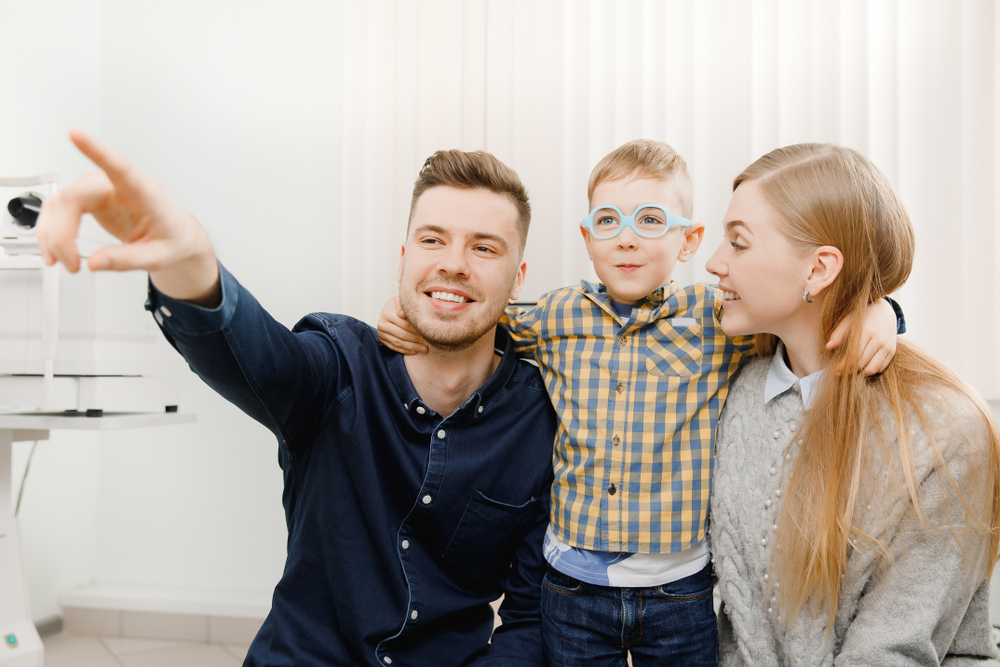
As a parent, your child’s health and well-being are top priorities—and their vision plays a crucial role in their overall development. Myopia is a common vision condition affecting an increasing number of children. Understanding what myopia is, its impact on learning, and the importance of early intervention can empower parents to support their child's eye health effectively.
What Is Myopia?
Myopia is a refractive error where distant objects appear blurry while close objects are seen clearly. It occurs when the eyeball is elongated or the cornea is too curved, causing light to focus in front of the retina instead of directly on it. Myopia typically develops in childhood and can progress rapidly if left unmanaged.
Children with untreated myopia may struggle in school due to difficulty seeing the board, reading from a distance, or participating in sports. This can lead to frustration, lower self-esteem, and academic challenges. By addressing myopia early, you can help your child maintain their focus—both visually and academically.
The Importance of Regular Pediatric Eye Exams
Annual eye exams are essential for early detection of myopia and other vision problems. Pediatric eye exams can identify myopia even before noticeable symptoms appear. Early intervention not only ensures your child sees clearly but also slows the progression of myopia, reducing the risk of future complications.
What Is Myopia Management, and Why Is It Important?
Myopia management involves strategies to control the progression of myopia in children. This is crucial because high myopia can increase the risk of serious eye conditions such as:
Retinal detachment
Glaucoma
Cataracts
Myopic maculopathy
By managing myopia early, parents can help protect their child’s long-term eye health and quality of life.
Effective Myopia Management Strategies
There are several proven methods to manage myopia in children:
Orthokeratology (Ortho-K): Ortho-K involves wearing specially designed gas-permeable contact lenses overnight. These lenses temporarily reshape the cornea, allowing clear vision during the day without the need for glasses or contacts. Ortho-K has also been shown to slow myopia progression.
Atropine Eye Drops: Low-dose atropine eye drops are a safe and effective treatment to slow the progression of myopia. They are typically used in conjunction with other myopia management strategies.
Multifocal Soft Contact Lenses: These specially designed contact lenses have multiple zones to correct myopia and control its progression, providing clear vision while managing the condition.
Encouraging Outdoor Time: Spending more time outdoors has been linked to slower myopia progression. Sunlight exposure stimulates the release of dopamine in the retina, which can help regulate eye growth.
Limiting Screen Time: Prolonged screen time can contribute to eye strain and potentially worsen myopia. Encourage regular breaks, the 20-20-20 rule (looking 20 feet away for 20 seconds every 20 minutes), and balance screen time with outdoor activities.
Partner with Ohana Eye Care for Your Child’s Vision Health
Managing myopia in children is a proactive step toward protecting their vision and supporting their overall well-being. By understanding what myopia is, its impact on learning, and the importance of early detection, parents can help their children thrive both in and out of the classroom. With effective myopia management strategies, you can play an active role in preserving your child’s eye health. At Ohana Eye Care, we provide comprehensive pediatric eye care and personalized solutions to ensure your child enjoys clear vision and a brighter future.
Schedule an eye exam with Ohana Eye Care and give your child the tools they need to succeed—both visually and academically. Visit our office in Peoria, Arizona, or call (623) 583-8388 to book an appointment and explore our myopia management options.








